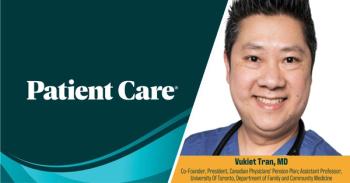
CHEST: World Trade Center Cough Linked to Enzyme Deficiency
SALT LAKE CIY -- A deficiency in the enzyme alpha-1 antitrypsin (A1AT) may help explain why some people exposed to the toxic dust from the collapse of the World Trade Center towers developed respiratory disease and others didn't.
SALT LAKE CIY, Oct. 24 -- Researchers are slowly beginning to tease out why some people exposed to the toxic dust from the collapse of the World Trade Center towers developed respiratory disease and others didn't.
One factor that may have played a role is a deficiency in the enzyme alpha-1 antitrypsin (A1AT), an investigator looking into the so-called World Trade Center cough said at Chest 2006, the meeting of the American College of Chest Physicians.
Alpha 1-antitrypsin is a serine protease inhibitor. It protects tissue from enzymes released by inflammatory cells, especially elastase.
In a study he repeatedly characterized as "very preliminary," David Prezant, M.D., of New York's Montefiore Medical Center found that firefighters with an A1AT deficiency had significantly faster declines in lung function than those with normal A1AT levels.
But, he cautioned, the finding is based on a small sample and needs more research before it will have clinical relevance.
"It is too early to apply this at this time," Dr. Prezant told reporters before presenting his data. Indeed, he said, it's likely that A1AT deficiency is only one of many factors that played a role in determining who got sick after the towers collapsed.
Dr. Prezant and colleagues have been studying 12,000 of the New York firefighters who were "down there during the days and weeks that followed the collapse of the towers" and for whom lung function tests both before and after are available.
About 25% of the 2,000 to 3,000 firefighters who were exposed to the toxic fumes and dust on the first day -- Sept. 11, 2001 -- are still suffering from pulmonary symptoms consistent with asthma, he said.
A small subset of 151 exposed firefighters were enrolled in October 2001, and offered annual spirometric testing until 2005, when the 90 remaining in the group (60%) were given a blood test for A1AT deficiency.
Eleven were deficient in the enzyme -- four severely and seven to a lesser degree -- although none was homozygous for the genetic variants that would have given them the worst level of deficiency.
"That's to be expected," Dr. Prezant said. "These were healthy people before 9/11 doing a tremendous amount of aerobic activities."
But when the researchers statistically correlated A1AT levels and declines in lung function in the year after 9/11, they found that severely deficient subjects had a greater decline in one-second forced expiratory volume (FEV1) than normal participants, by about 125 mL.
Over the four years after the buildings were destroyed, those with severe deficiency continued to decline more than normal participants, at a rate that was significant at P=0.003. Also, those with moderate deficiency had declines that were intermediate.
The American College of Chest Physicians estimates that about 150,000 people in North America have an A1AT deficiency, but only about 5% have been diagnosed.
"A1AT deficiency can greatly affect the health and well being of patients, particularly in those who remain undiagnosed," commented Mark Rosen, M.D., of Beth Israel Medical Center in New York, president of the college. "It is important for pulmonologists and other clinicians to understand screening guidelines for A1AT deficiency and recommend appropriate testing for patients accordingly."
Newsletter
Enhance your clinical practice with the Patient Care newsletter, offering the latest evidence-based guidelines, diagnostic insights, and treatment strategies for primary care physicians.



































































































































